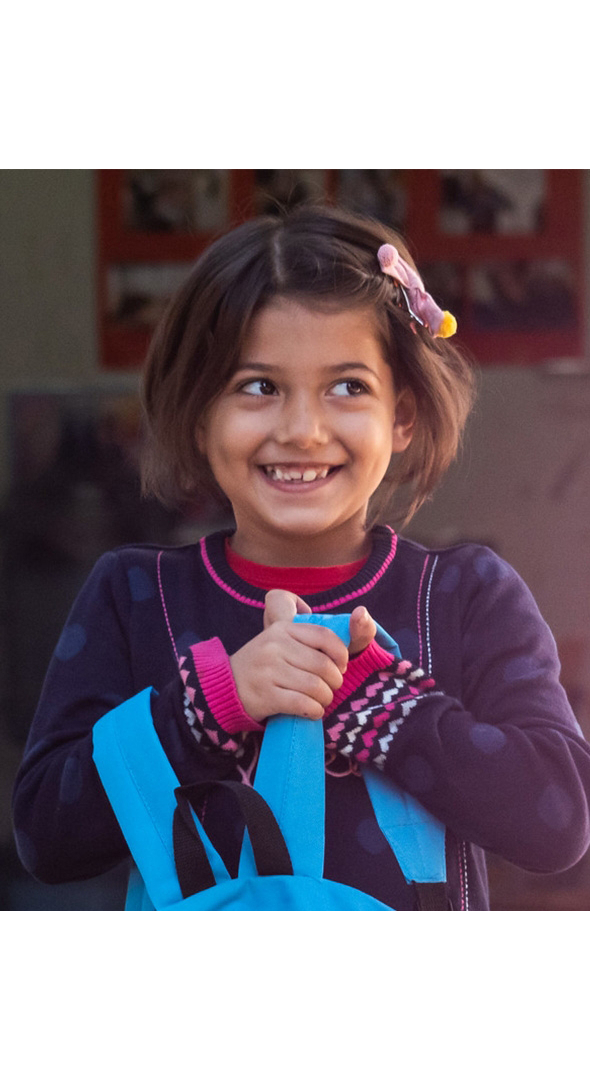UNICEF: The State of the World’s Children 2011 report Over 200M adolescents suffer from a mental health or behavioural problem Investing in adolescents can break cycles of poverty and inequity
2011-02-25
NEW YORK/ HONG KONG 25 Feuary 2011 – UNICEF releases today The State of the World’s Children 2011 report entitled ‘Adolescence: An Age of Opportunity’, which reveals that around 240 million adolescents suffering from a mental health or behavioural problem, such as depressing, eating disorders and substance abuse. According to the report, over 70 million females aged 15-49 have undergone female genital mutilation/cutting worldwide, while in Brazil alone, 81,000 adolescents aged 15-19 were murdered between 1998 and 2008. UNICEF believes investing in the world’s 1.2 billion adolescents aged 10-19 now can eak entrenched cycles of poverty and inequity.
Strong investments during the last 2 decades have resulted in enormous gains for young children up to the age of 10. The 33% drop in the global under 5 mortality rate shows that many more young lives have been saved, girls are almost as likely as boys to go to primary school, and millions of children now benefit from improved access to safe water and routine vaccinations. On the other hand, there have been fewer gains in areas critically affecting adolescents in their second decade of life, a critically important age, when inequities and poverty manifest starkly. Near 90% of the world’s adolescents live in developing countries, many of whom are facing a unique set of challenges and risks. In Brazil, for instance, 26,000 infants’ lives were saved between 1998 and 2008 – but in the same decade 81,000 Brazilian adolescents aged 15-19 were murdered. Although adolescents across the world are generally healthier today, inequity and reasons as such are still contributing to low school attendance, unemployment, exploitation and abuse of children and young people. Today, 20% of adolescents are suffering from a mental health or behavioural problem, such as depressing, eating disorders and substance abuse, substantially affecting their daily life and development. In 2009, 81 million young people were out of work globally. Youth unemployment remains a concern in almost every country and a loss for the communities. Poor or marginalised young people are less likely to continue to secondary education and globally girls still lag behind boys. 70 million adolescents are currently out of school. Without education, adolescents cannot develop the knowledge and skills to survive and protect themselves against exploitation, abuse and violence such as domestic labour and child marriage that are at height during this decade of life – especially girls. Girls who marry early are most at risk in being caught up in a negative cycle of premature child-bearing, high rates of maternal mortality and child undernutrition. “Adolescence is a pivot point – an opportunity to consolidate the gains we have made in early childhood or risk seeing those gains wiped out,” said Anthony Lake, UNICEF Executive Director. “We need to focus more attention now on reaching adolescents – especially adolescent girls – investing in education, health and other measures to engage them in the process of improving their own lives.” Large teenage population is actually a unique demographic asset. By investing in adolescent education and training, countries can reap a large and productive workforce, contributing significantly to the growth of national economies. Chief Executive of the Hong Kong Committee for UNICEF (HKCU), Irene Chan, also noted, “Adolescents today, including Hong Kong’s post-90s and even post-millennium generations, face multiple global challenges, among them the economic turmoil, climate change, explosive urbanisation, aging societies, the rising costs of healthcare, and escalating humanitarian crises. We must put more emphases and resources on equipping them to content with the impact.” To enable adolescents to effectively deal with these challenges, targeted investments in the following key areas are necessary:








